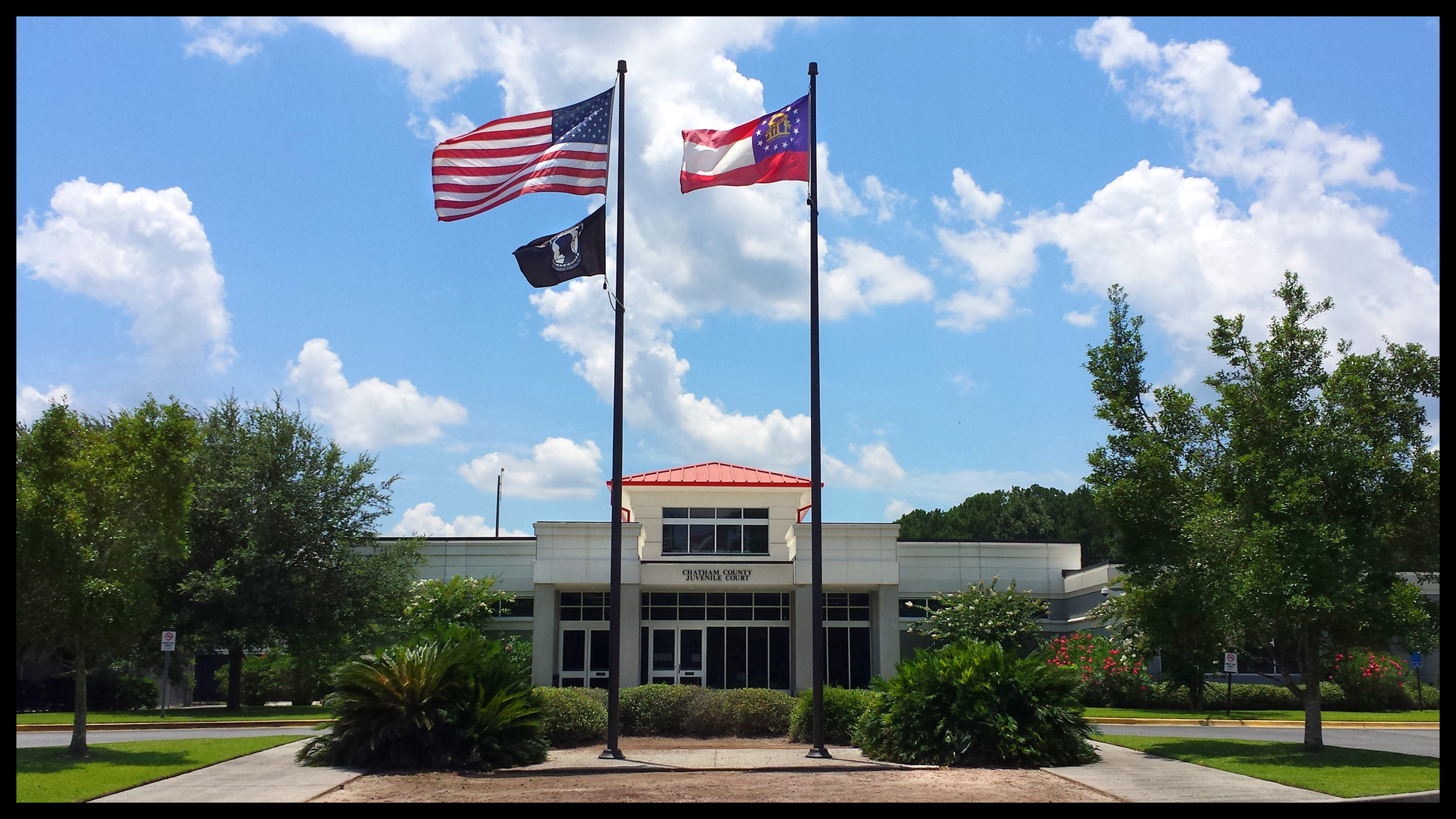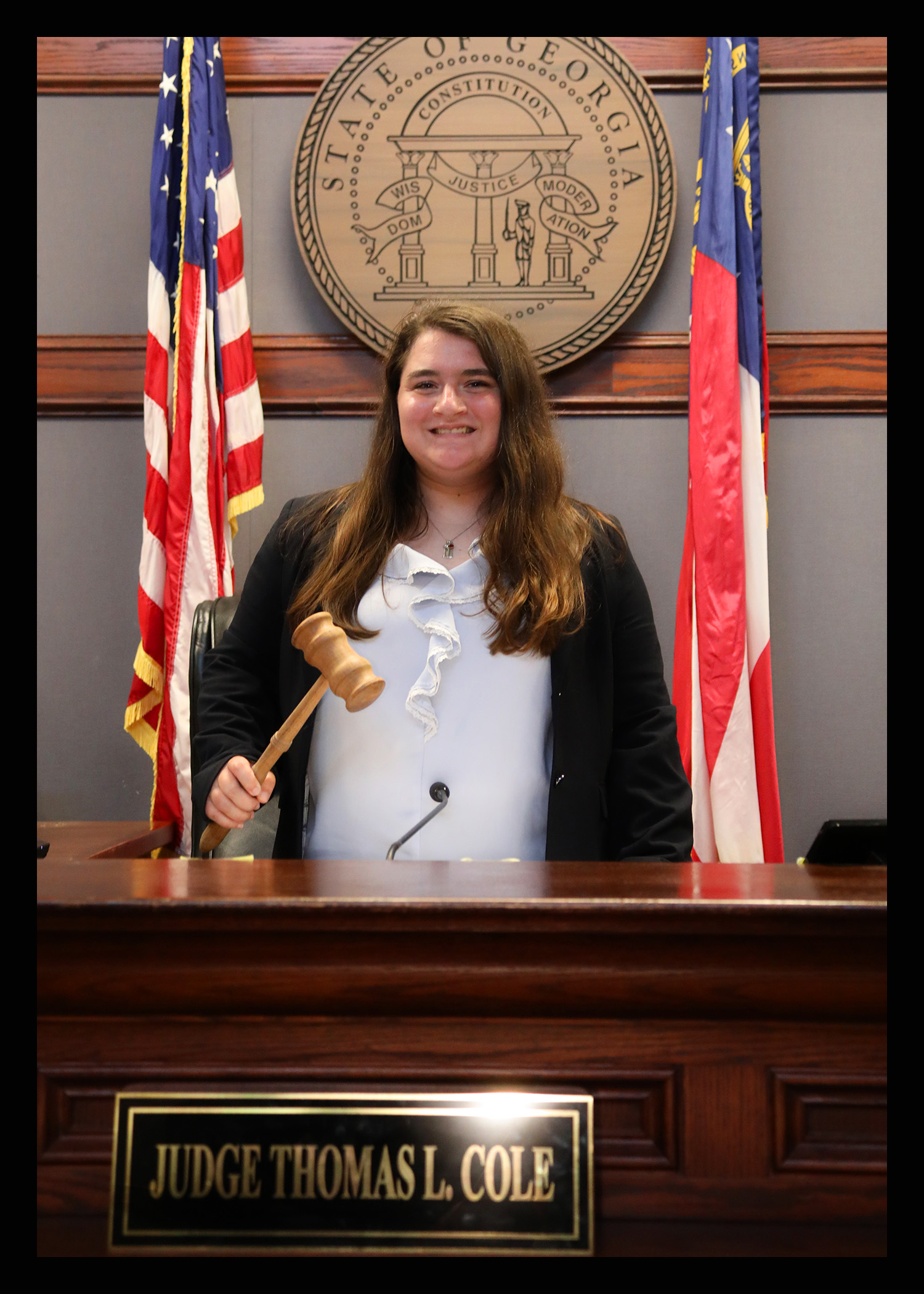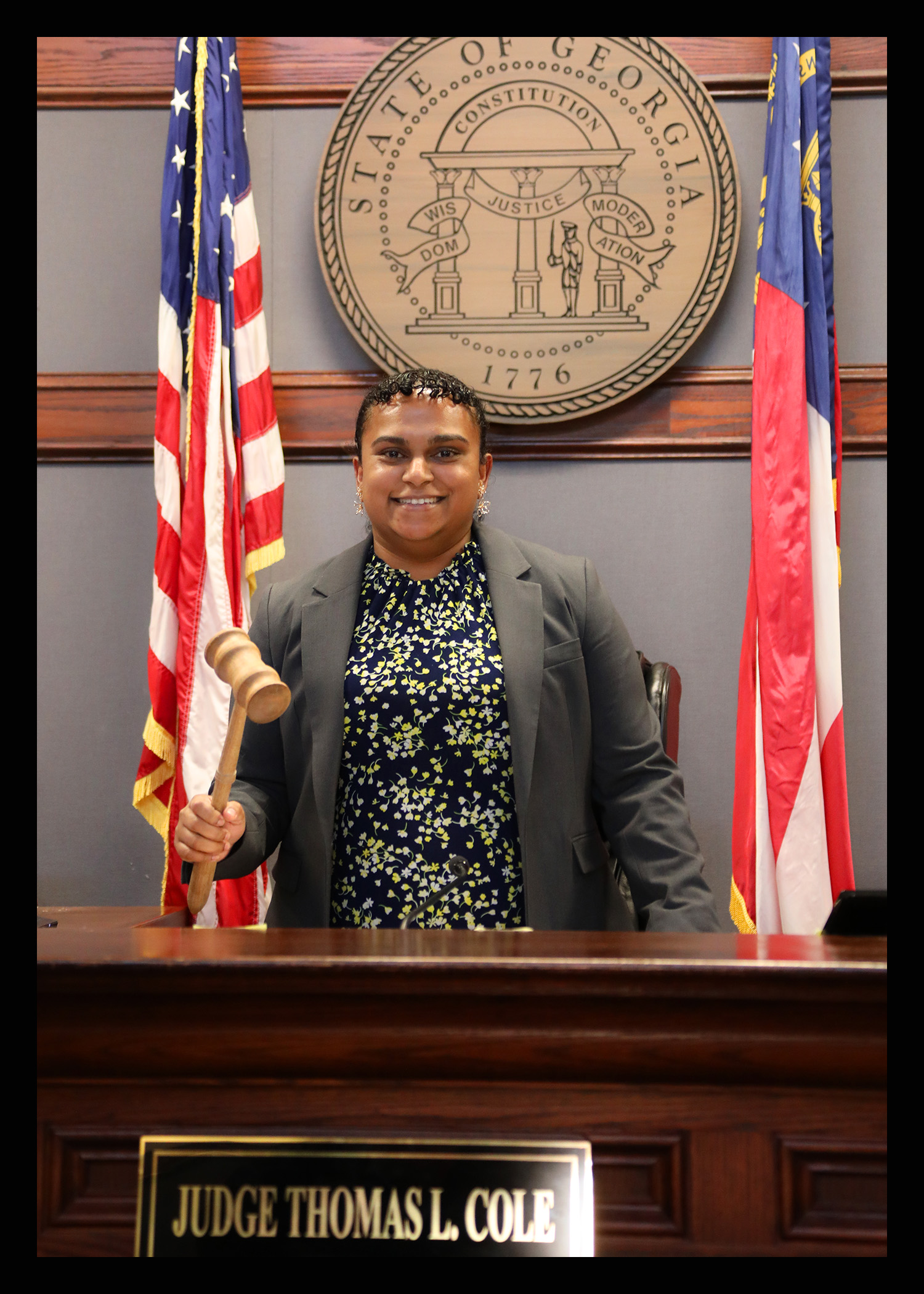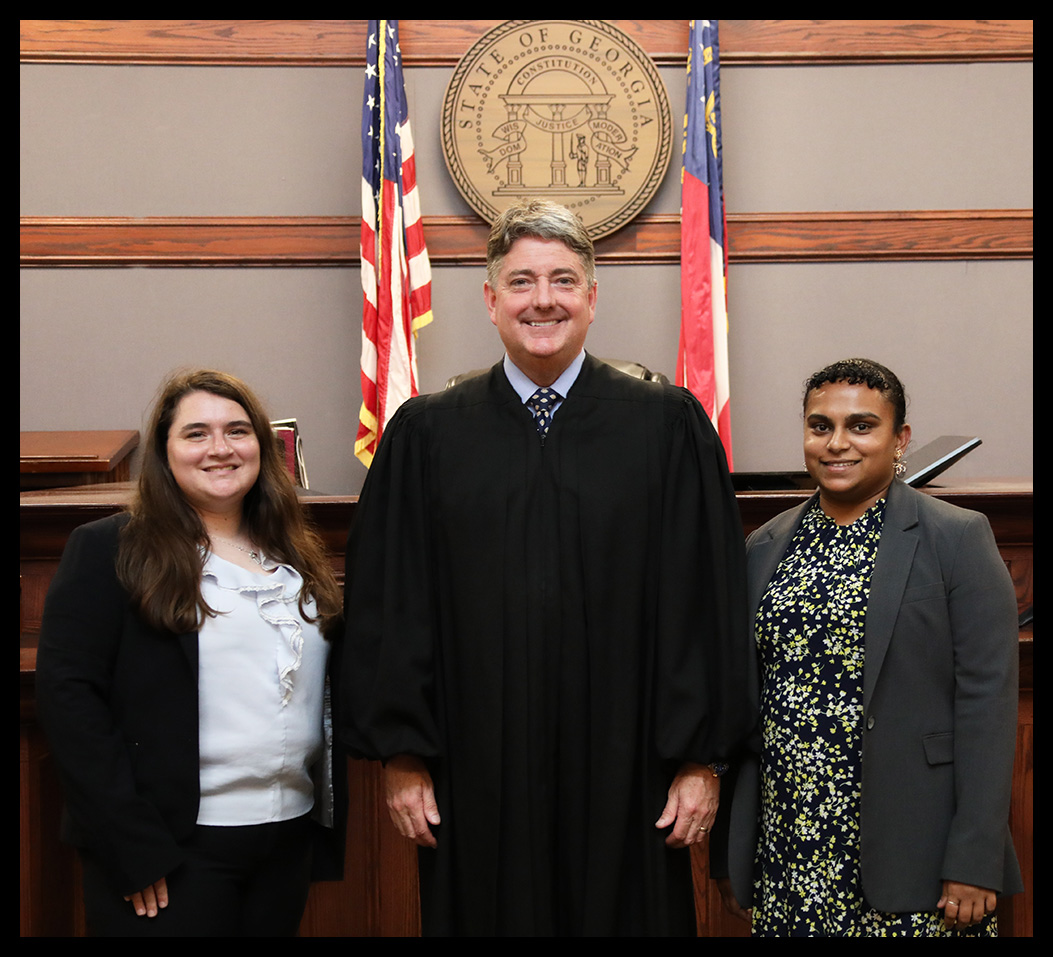Doubly Honored

Chatham County has twice been selected to host the prestigious ESCAP Internship
from Emory University School of Law and The Barton Child Law and Policy Center
It is a high honor to be selected for the prestigious Emory Child Summer Advocate Program (ESCAP). For twenty-five years, the Barton Child Law and Policy Center at Emory University School of Law has annually sponsored a highly competitive program to introduce the most talented law students across the nation to legal environments that are flagships in the areas of child welfare and juvenile justice. It is noteworthy that Chatham County has been selected two years in a row – an indication of Chatham County's continuing commitment to making a real difference in child welfare and juvenile justice.
Applicants compete for one of twelve coveted paid internships funded by the Children’s Justice Act Grant. Courts like ours hope to be recognized as worthy placements for the assignments as well. After intensive screening, internships are awarded based on carefully considered matches between potential mentors and mentees.
 Last year, Chatham County's Child Advocate’s Office was proud to host Emory Law Student Audrey Hoem as an ESCAP intern. This year, the Chatham County Juvenile Court is proud to host Mercer Law Student Abhaya Velmani.
Last year, Chatham County's Child Advocate’s Office was proud to host Emory Law Student Audrey Hoem as an ESCAP intern. This year, the Chatham County Juvenile Court is proud to host Mercer Law Student Abhaya Velmani.
These bright young legal minds make real contributions to County cases and needs. Ms. Hoem has returned to Chatham County to work with the Juvenile Court Public Defender's Office. Ms. Velmani is assisting judges and learning from Chatham’s accountability courts ANCHOR (Family Treatment Court), SPARC (Juvenile Mental Health Court), and HOPE (victims of child sexual exploitation treatment court).
The unique mix of idealism and pragmatism that is the hallmark of child advocacy and juvenile justice has resonated strongly with each of them. For Ms. Velmani, it’s about the holistic approach to healing imperiled lives. “It's easy to reduce it to the simple narrative of ‘we're trying to save children from danger,’ but it's a preventative field that takes all kinds of skill sets. We really are trying to be the village for children. Good legal professionals in child welfare know how to understand the complexities of children's situations and then use their analytical skills to represent them to the court. That preventative effort is what I really like about it. It saves money for everyone else in the long run because you're catching issues, and you're helping children early on, especially children who don't have access to basic needs, or who are subject to dysfunction. These are future adults who would struggle to be engaged and active community members. But if we provide them with the right representation and guide them on the right track, we are supporting post-traumatic growth. It means future citizens who are going to use their difficult background and make the most out of it, instead of being sabotaged by it. I think that’s really powerful.”
Juvenile Court Presiding Judge Thomas Cole feels the same, even more after his many years of practice. “There are very few cases or people elsewhere in our world that have such significant needs. Child welfare deals with children and families in the worst of circumstances, and it's an opportunity for a lawyer to actively work and intervene and change the future for a child and a family. Doing so has an effect for that child and their future, but then the ripple effects go out to the next generation, and the next generation, or into the community. If that child can be healthy and grow up to be productive, and they aren't in our system, it's a whole different world for them.” This is the legacy of the work being done every day in courtrooms like his.
Ms. Hoem echoes the theme of positivity that runs through child welfare and juvenile justice. “In the adult system, I would always hear, ‘I just wish I had met them ten or even five years earlier! I’m putting out fires that could have been prevented.’ The ESCAP program made me realize that I can clearly make the most difference here. It’s more hopeful. That’s what I love about the work with juveniles – the focus is totally shifted towards rehabilitation. You’re able to do a lot more with the services you have. You know that you’re living your fullest potential as a lawyer!”
Laser-focused programs like the ESCAP internship make the case for law careers that change the trajectories of lives and build legacies of generational restoration. Courts like Chatham County’s Juvenile Court are trailblazers, carving out new paths into the tangled, often thorny landscape of child welfare. Judge Cole is deeply committed to his role and responsibilities not only as a trailblazer but also as a torchbearer, beckoning others to follow on this path. In addition to his work as Presiding Judge of Chatham County Juvenile Court, he serves on the Child Representation Steering Committee of the Georgia Office of the Child Advocate, on the Leadership Steering Team for Georgia's [Juvenile] Court Improvement Initiative, as Secretary of the Georgia Council of Juvenile Court Judges, and as Chair of the Georgia Council of Accountability Court Judges.
A graduate of the University of Georgia School of Law himself, he has become one of Emory University and the Barton Center’s biggest fans for the way they have led the child welfare and juvenile justice charge in our state for a quarter of a century. Judge Cole and other leaders in this field energetically support efforts to enhance the quality of legal representation for children and families. Chatham County Juvenile Court’s multi-disciplinary team representing neglected and abused children testifies to both the need for and the efficacy of such efforts.
“Juvenile justice,” the judge says, “is one of the few areas of law where our mandate is to address the underlying issues, so that the kids don’t come back over and over, or so that whatever abuse or neglect brought the family here doesn’t bring them back six months later. There are horrific things that happen to children in our community, and why we keep doing this work is because we are making a difference.”
“Chatham County really is supportive of the work we do. Chairman Ellis has traveled with me to juvenile justice functions to observe and learn – he’s personally very engaged. And our County Managers are supportive of the programs where we identify gaps and say ‘we need this.’ That’s how we have our Front Porch, Restorative Conferencing, and our Work Readiness Enrichment Program. What we’re doing here actually IS changing things and making a difference! Having a chairman and a county manager’s office and a commission that supports us to do the work is amazing. It’s always ‘where is there a need where it’s going to make a difference?’
The Barton Child Law and Policy Center has the same kind of focus, and these young ESCAP interns are here seeing the need in person, and they will be part of making the difference in the future.”

Emory Law School student Audrey Hoem, Juvenile Court Presiding Judge Thomas Cole, and Mercer Law School student Abhaya Velmani
